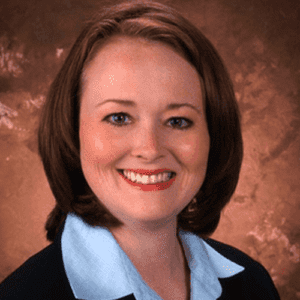
The purpose of this blog is to stimulate thought and discussion about important issues in healthcare. Opinions expressed are those of the author and do not necessarily express the views of CMDA. We encourage you to join the conversation on our website and share your experience, insight and expertise. CMDA has a rigorous and representative process in formulating official positions, which are largely limited to bioethical areas.
Facing Burnout in Healthcare
February 11, 2016
by Autumn Dawn Galbreath, MD, MBA
By Autumn Dawn Galbreath, MD, MBA | February 11, 2016
Excerpted from “Study: Doctor burnout may increase effect of biases on care,” UPI. January 13, 2016 — A national survey of doctors shows job burnout and personal bias have continued to increase in recent years, and researchers suggest the growth of both could affect the quality of care patients receive.
Doctors said bureaucratic tasks, working too many hours, computerization, and dealing with insurance as among aspects of the job most burning them out, in the survey conducted by MedScape. These, and other, aspects may also increase the way that personal and other biases such as emotional problems, weight, and intelligence. Researchers wrote in the report that the new survey echoes other recent surveys and “strongly suggests that burnout among U.S. physicians has reached a critical level. Burnout is generally defined as loss of enthusiasm for work, depersonalization, and a low sense of personal accomplishment.”
The highest percentage of physicians reporting burnout were in critical care, urology, and emergency medicine, as 55 percent of survey participants in those categories said they felt at least one aspect of burnout. All three represent increases in the percentage of doctors reporting burnout, the largest of the three coming from urologists. Family medicine and internal medicine were fourth and fifth on the list at 54 percent.
More doctors who expressed burnout, 43 percent, said they also had biases, while 36 percent of physicians without burnout admitted to bias. The two, researchers suggest, may be related as doctors who are burned out are more likely to have less patience for emotional or difficult patients — regardless of reported biases.In addition to individual help for physicians, researchers said efforts to improve patient satisfaction also help improve physician burnout. Improving systems for delivering medical treatment are part of fixing the problem, researchers write.
Commentary
Internist and CMDA Member Autumn Dawn Galbreath, MD, MBA: “‘About half of all physicians, regardless of specialty, report some level of burnout….” My guess is that physicians who read this article will not find that surprising. It is a rare physician who has not personally experienced, or watched a colleague experience, ‘loss of enthusiasm for work, depersonalization and a low sense of personal accomplishment.’ Much of this emotional maelstrom is due to the stresses of the profession, some of which are listed in the article: ‘bureaucratic tasks, working too many hours, computerization and dealing with insurance.’ And I would add a few more: the often abusive culture of the healthcare profession, life and death dilemmas, the threat or reality of malpractice suits, long work hours and short nights of sleep. If I were writing a job description that was sure to result in burnout, I would describe the healthcare profession!
“How can we care well for others even as we fail to care for ourselves? It is only reasonable that bias would begin to impact our patient care when we deliver care from a place of stress and fatigue that prevent personal insight. Nor is this a new problem. William Osler saw the importance of self-care in preventing burnout more than 100 years ago: ‘The young doctor should look about early for an avocation, a pastime, that will take him away from patients, pills and potions.’ It is about time healthcare professionals begin to heed Osler’s warning!
“And as Christian healthcare professionals, whose perspective is eternal and whose identity is not found in our careers, we have access to so much more than a vocation. We have access to the God of the universe who promises to uphold and strengthen us (Isaiah 41:10). If we prioritize our lives and careers based on God’s priorities and fill ourselves with His presence before we pour ourselves out in service to others, the stresses of the profession begin to fade into the background as God’s presence fills up the space in our lives.”

